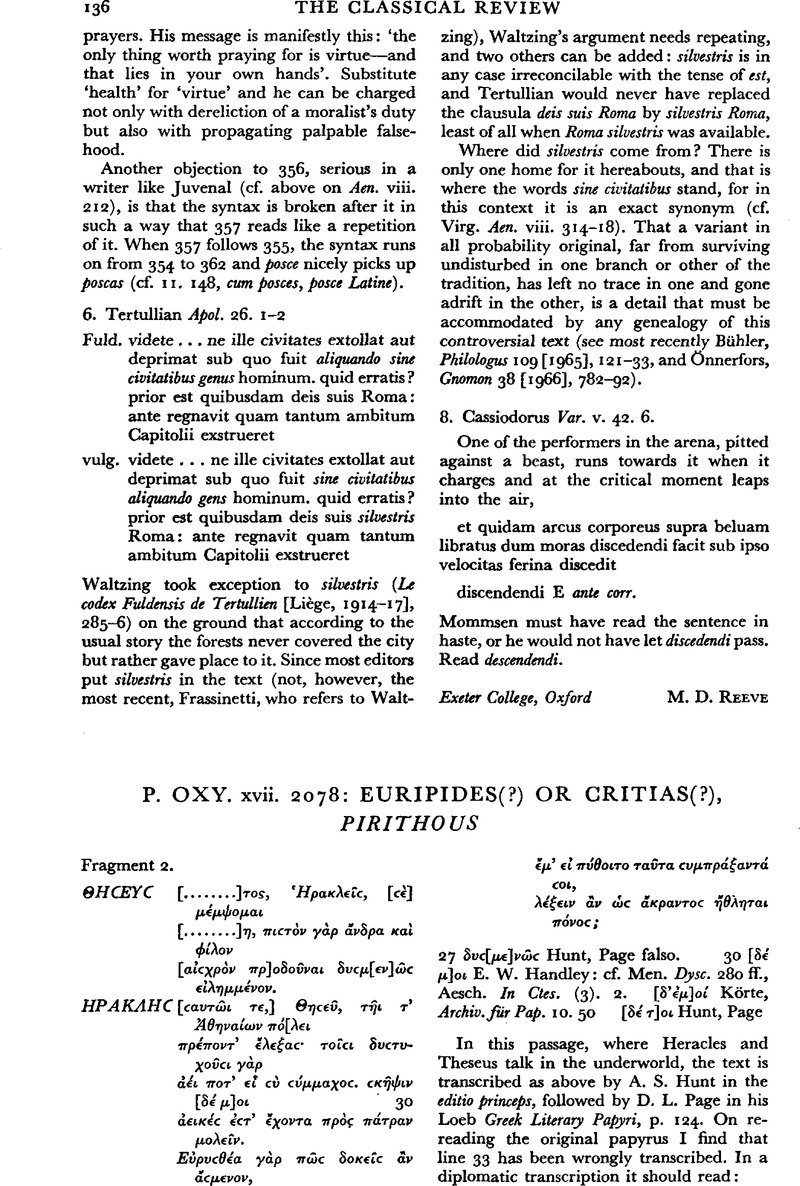No CrossRef data available.
Published online by Cambridge University Press: 27 February 2009

1 Körte, loc. cit., p. 50.
2 εἲ νοι is found in the same position in the line in Hec. 836 εἲ νοι γ⋯νοιτο φθ⋯γγος ⋯νβραχ⋯οσι and N2 Frag. 899 εἲ νοι τ⋯ Νεστ⋯ρειον εὔγλωσσον μ⋯λος / Ἀντ⋯νορ⋯ς τε το⋯Φρυγ⋯ς δο⋯ƞ θε⋯ς; cf. also Heracl. 791, Phoen. 633 (and Ion 331).
3 Elision of ⋯ν⋯ before εἰ is ill-attested in Euripides. The emphatic form is found with the first syllable lengthened in crasis in H.F. 41 κἄμ’—εἴ τι χρ⋯ κἄμ’ ⋯ν ⋯νδρ⋯σιν λ⋯γειν. The unemphatic form is found in Hel. 1101, H.F. 302, and I.A. ioao, 1206. No examples occur in the fragments of Critias.
4 Apollodorus ii. 113. Eurystheus had rejected the labours of the Augean stable and the Lernaean Hydra.
5 I should like to thank Professors E. G. Turner and E. W. Handley for their interest and encouragement in the preparation of this note.